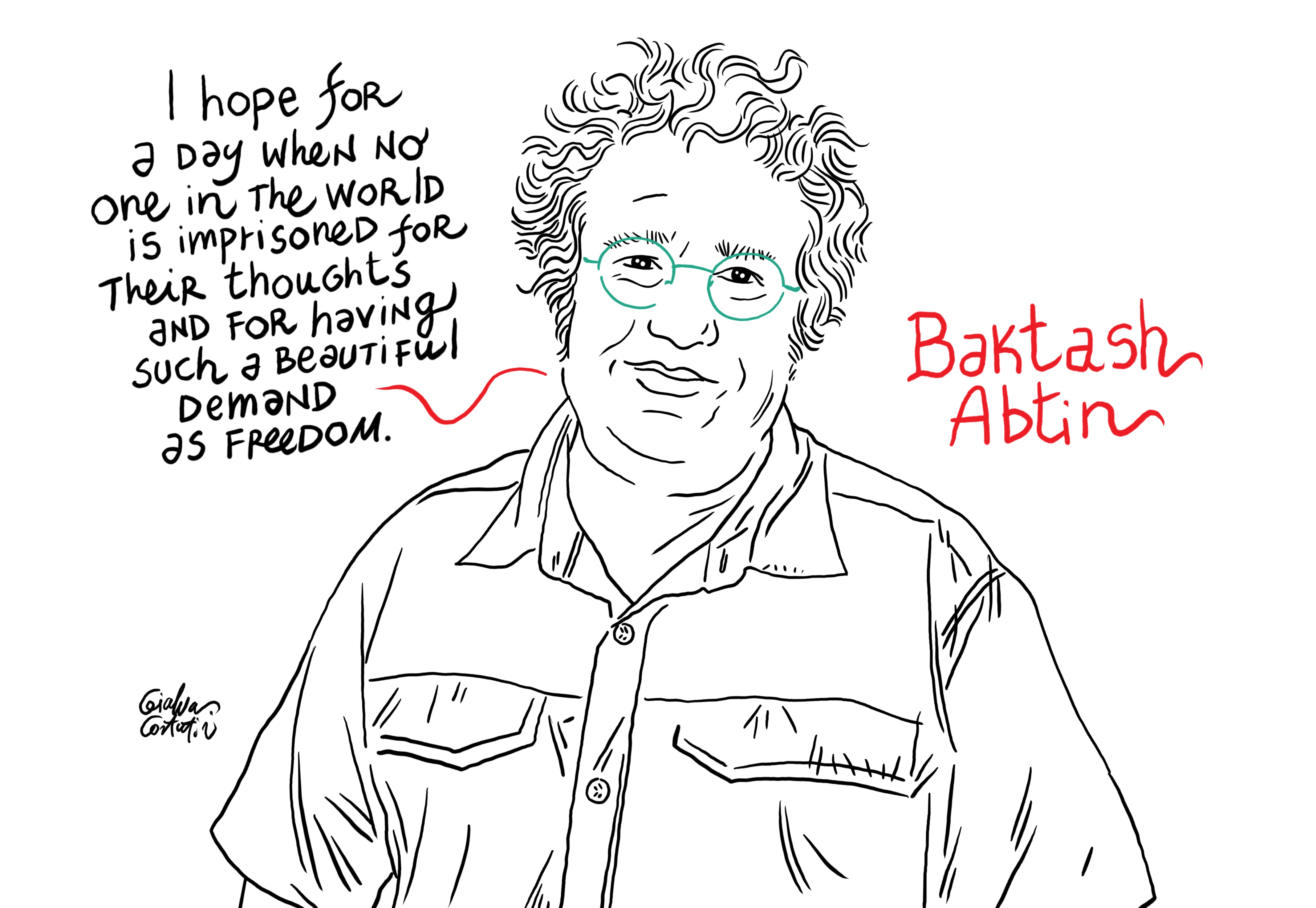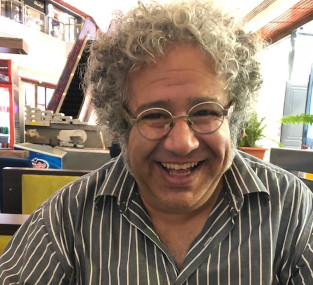Iran: Three years on, still no accountability for the death in custody of Baktash Abtin
JOINT STATEMENT

Image credit: Gianluca Costantini for Front Line Defenders and PEN America.
8 January 2025 marks the third anniversary of the death of Baktash Abtin, a poet, film-maker, and human rights defender, who was serving an unjust six-year prison term in Evin Prison during the COVID-19 pandemic.
“On this solemn day, as we mourn the life, words, and work of Baktash Abtin, we also renew our call for accountability in the untimely and avoidable manner of his death. In light of the failure of the Iranian authorities to fulfil their international obligations, Front Line Defenders and PEN America jointly call for an international and impartial investigation to be carried out into the death of Baktash Abtin and those who have been targeted for their human rights and freedom of speech activities. This investigation should be conducted with a view to publishing the results and bringing those responsible for such violations to justice. We also call on other UN member states, during the upcoming fourth cycle Universal Periodic Review (UPR) of Iran at the Human Rights Council, which will take place in a few weeks, to press Iranian authorities to accept and implement recommendations regarding the provision of adequate and timely medical care to prisoners without discrimination.”
On 3 December 2021, Baktash Abtin displayed severe COVID-19 symptoms. During his illness he was kept between his prison ward and the Evin clinic until he was transferred to Taleghani hospital on the night of 6 December 2021. While receiving treatment in Taleghani hospital, he was shackled to his bed. His family only became aware of the transfer two days later through his fellow inmates; Iranian prison authorities refused to provide them with any further information about his whereabouts. Two days later, on 8 December 2021, the human rights defender was moved to an intensive care unit due to his deteriorating health condition. On 13 December 2021, Baktash Abtin was granted a medical furlough to continue his treatment under the supervision of the doctors assigned by his family. However, according to the Iranian Writers’ Association (IWA) and his family, it was already too late. Hearing news that he had been placed in a medically-induced coma on 1 January, a group of human rights organizations urged Iran to commit to providing Abtin with the best available expert medical care, but he passed away the following day.
This was the second time that Baktash Abtin had contracted COVID-19 since his imprisonment in late September 2020. He had first contracted the virus in Evin prison, Tehran, in April 2021. At that time, his health was reported to be in a critical condition given his vulnerable health situation, including pre-existing pulmonary problems which were exacerbated by the poor living conditions of detainees in the Iranian prison.
On 15 May 2019, Branch 28 of the Tehran Revolutionary Court sentenced Baktash Abtin to five years’ imprisonment on charges of “illegal assembly and collusion against national security” and one year for “spreading propaganda against the state”, in relation to his joint authorship of a book on the history of the IWA which aims to promote freedom of speech and denounce censorship in Iran. He began serving his six-year sentence on 26 September 2020, when an earlier wave of the pandemic was ravaging Iranian prisons.
Baktash Abtin should not have been imprisoned in the first place for his human rights activities and exercising his right to freedom of speech. Front Line Defenders and PEN America believe that the government bears responsibility for Abtin’s death, as his access to appropriate treatment and medical leave was delayed after he contracted COVID-19 in Evin Prison.
Rather than examining the relevant procedures and conducting an immediate, thorough and impartial investigation into the death of Baktash Abtin, the Iranian authorities have instead increased the reprisals against those detained for exercising human rights by arbitrary summons to prisons, denying timely access to medical treatment and furloughs, and in some cases restricting access to their bodies after death and banning grieving methods and venues chosen by their families.
This pattern of deliberate medical neglect has been acknowledged as a problem by the Iranian government, which supported a recommendation in a 2019 United Nations review of its human rights record during the previous UPR cycle to ensure that all individuals in it’s custody receive adequate health care and treatment without discrimination. The death of Baktash Abtin and the ongoing stories of other prisoners who have been deprived of or have experienced extensive delays in receiving medical care shows that the issue remains a crucial–yet unaddressed–concern almost six years later.
Baktash Abtin will be remembered by writers and human right defenders with his “... hope for a day when no one in the world is imprisoned for their thoughts and for having such a beautiful demand as freedom.”

